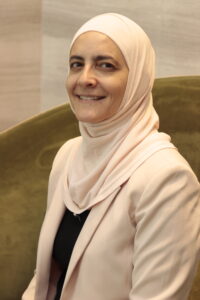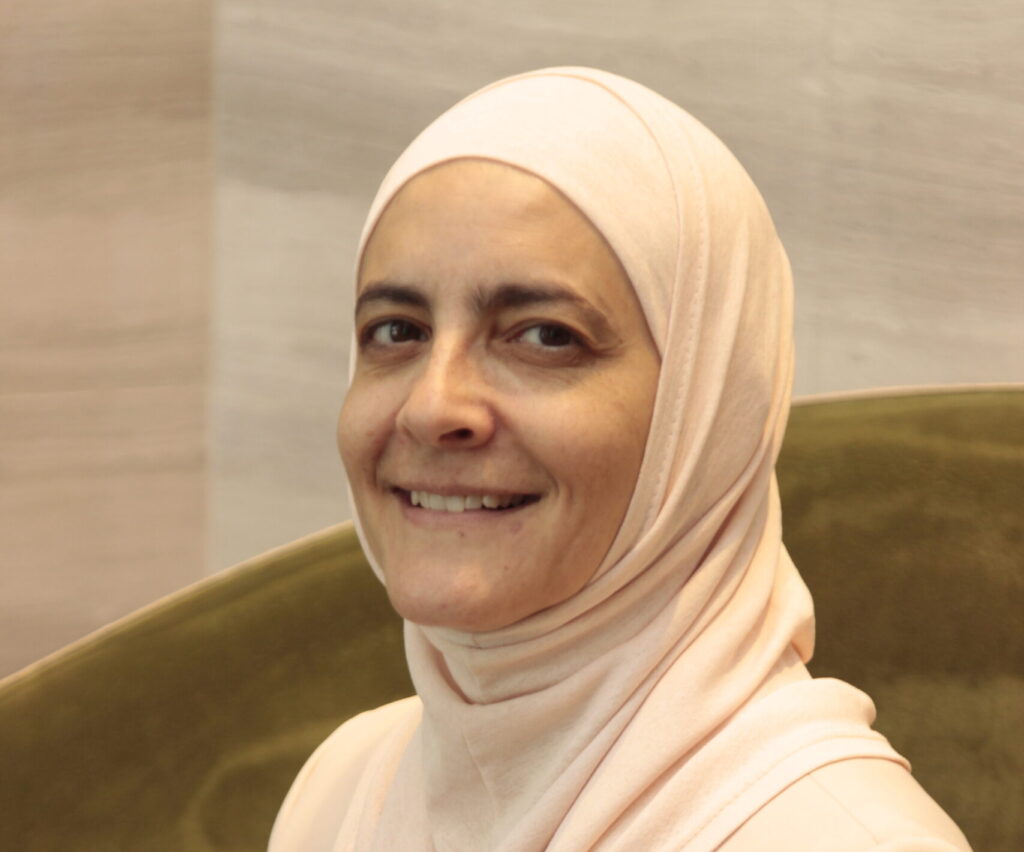SASTA President Rana Dajani discusses the need for diversity and introduces SASTA’s mission to advance science and technology in the Arab world.
The Society for the Advancement of Science and Technology in the Arab World (SASTA) is a non-profit organization in the US that strives to mobilize and catalyze the engagement of scientists, professionals, NGO’s, academic institutions, and professional societies to advance higher education, science, and research in Arab countries. SASTA’s objective is to contribute to the advancement of science, technology, higher education, and research in the Arab region through supporting scientific human capacity building, development of academic and research programs, and providing scientific, technical, and material support to local academics, scientists, and universities. SASTA seeks to achieve this objective by:
- Developing and maintaining a comprehensive database of Arab expatriate scientists and scientists in the Arab world—and developing tools that would enable the use of this database—as a catalyst for capacity building through networking and collaboration between scientists in the Arab world and abroad.
- Establishing partnerships with universities, NGOs, professional societies, and industries in and outside the region.
- Developing programs to train local scientists in specific research areas of special importance to their local society needs and/or national priorities
- Acting as an independent non-partisan scientific body on issues related to science and its advancement in the Arab region
- Promoting science-based programs on sustainable economic development and establishing a cooperation of sustainable science and technology between academic institutions, industry, and government.
To do good science we need to include everyone, because we are driven by diversity in many forms. For example, we need diversity in genetics to understand disease mechanisms and biological mechanisms. Recently Almarri et al. published research highlighting the importance of examining understudied populations to understand how humans adapted to agricultural development and desertification. The team, from the Wellcome Sanger Institute, the University of Birmingham, and scientists in the United Arab Emirates and Saudi Arabia sequenced 137 complete human genomes from eight modern Middle Eastern populations, allowing them to map human evolution in the region from 100,000 years ago to the present day.
Also recently published was a multicountry effort analyzing the genetics of COVID patients. The contribution of samples from those from the middle eastern lineage was very important to understanding the complexity of host genetic factors in COVID. The study revealed 13 loci in the human genome that are associated with SARS-CoV-2 infection or severe COVID-19. The study supported causal factors such as smoking and high body mass index. This was one of the largest genome-wide association studies (GWAS) ever performed; it included 50,000 COVID-19 patients and two million uninfected controls. The results will help reveal potential targets for future therapies. Such studies illustrate both the power of genetic studies for learning more about infectious disease and the need for diversity in such studies.
We also need diversity in opinions and perspectives; to think what no one has thought while observing the same phenomenon many have observed is the hallmark of being a scientist.
To face the challenges of the 21st century, we need to work in teams and have the courage to cross disciplines. It is at the boundaries of disciplines that creativity happens, and creativity is an essential ingredient for developing the solutions to move toward achieving the UN Sustainable Development Goals. SASTA supports Arab scientists in diaspora and within the Arab world. SASTA brings a wealth of knowledge, expertise, and experience, drawing from a civilization that formed the basis of modern science today. We can learn much from each other.
References
Almarri, M.A. et al. The genomic history of the Middle East. Cell 184, 1-14 (2021).
COVID-19 Host Genetics Initiative. Mapping the human genetic architecture of COVID-19. Nature (2021).
About the author:

Rana Dajani has a PhD in molecular cell biology from U of Iowa and is currently Cmalakova Fellow at the Jepson school of Leadership at the University of Richmond, Harvard Radcliff fellow, a Fulbrighter, Fulbright Foreign Student Program, Jordan to the United States, 2000; Fulbright Visiting Scholar Program, Jordan to the United States, 2012. Eisenhower fellow, Professor, former center of studies director, Hashemite University, Jordan, Yale and Cambridge visiting professor. World expert on genetics of Circassian and Chechan populations in Jordan. Established stem cell research ethics law in Jordan. Advocate for biological evolution and Islam, speaker at McGill University and MIT. Jordan team leader in studying refugee youth with Yale University and the epigenetics of trauma across generations. Higher education reform expert, member UN women Jordan advisory council. Writer in Science and Nature, Established a women mentor network, received Partnerships for enhanced engagement in research (PEER) award 2014. Organized the first gender summit for the Arab world 2017. Most influential women scientists in Islamic World, 12 among100 most influential Arab women 2015, women in science hall of fame 2015, King Hussein Cancer Institute for cancer and biotechnology award 2009 and 2016 Global Changemaker Award for celebrating 70 years of the Fulbright Programm. President of the Society for the Advancement of Science, Technology and Innovation in the Arab World. women of influence in the Arab World 2021 Arabian Business magazine’s list
Awarded the Jordan star of science by His Majesty King Abdullah II, University of Iowa, College of medicine, distinguished alumni Award 2018, Higher Education Reform Expert EU-TEMPUS, Jordan, founder service learning center, Hashemite University, speaker at TEDxDeadsea and TEDxPSUT, World Islamic Economic Forum 2012 and World Science Forum 2015 and 2017.
Developed a community-based model “We love reading” Changing mindsets through reading to create changemakers, received Synergos Arab world social innovators 2009, Clinton Global Initiative 2010, Library of Congress best practices 2013, World Innovation Summit in Education Award 2014, King Hussein Medal of Honor 2014, Star Award 2015, IDEO.org best refugee education program 2015, UNESCO International Literacy Prize 2017, World Literacy Council Award 2018 and the Jacobs social entrepreneurship award 2018, Science, Technology and Innovation Award UN 2019, Ashoka Fellow 2019, UNHCR Nansen Refugee awardee 2020.
Author of the book: Five scarves, Doing the impossible: If we can reverse cell fate why can’t we redefine success, Nova Publisher 2018. Reviewed by Nature.































